Did you know over 25% of the population carries a genetic predisposition that makes them susceptible to Chronic Inflammatory Response Syndrome (CIRS)? If you carry a specific HLA haplotype, you may not only be susceptible to CIRS but a host of other autoimmune diseases such as fibromyalgia, rheumatoid arthritis, type 1 diabetes, and multiple sclerosis.
In the case of CIRS, this genetic haplotype negatively affects the way your body metabolizes and clears biotoxins. The result? A host of troublesome symptoms. Chronic fatigue? Memory loss? Mood changes? Gastrointestinal upset? Major brain fog? If any of the above ring a bell, it may be time to look at CIRS as the potential underlying cause for your symptoms.
Mold illness, also referred to as CIRS, is a potentially debilitating condition in which multiple body systems are in a chronically inflamed state as a result of exposure to biotoxins. In the case of mold exposure, these biotoxins are mycotoxins.
Because mold illness, or CIRS, affects multiple organ systems, it involves a broad range of symptoms. When left unaddressed for a long time, the condition and its associated symptoms can be debilitating.




As previously mentioned, CIRS is a result of exposure to biotoxins. Biotoxins are toxic substances produced by microorganisms, plants, or animals. Examples of biotoxins include:
Because multiple bodily systems are involved in the pathology of CIRS, the symptoms can be broad and non-specific. Your presentation of symptoms can depend on genetics, the severity of biotoxin exposure, dietary habits, and lifestyle factors. CIRS symptoms can include:
Oftentimes, CIRS symptoms occur in cluster patterns. For example, muscle aches are commonly coupled with joint pain and stiffness. Sinus congestion is often paired with shortness of breath and disorientation. Static shocks or pins and needles sensations are often accompanied by dizziness. A qualified doctor or healthcare professional can notice CIRS symptom clusters.
In the case of CIRS caused by mold illness, the main biotoxin at play is mycotoxins. Mold naturally produces various types of mycotoxins such as aflatoxin, ochratoxin, penicillic acid, and sterigmatocystin.
You may expose yourself to these mycotoxins through contaminated food, infected animals, mold growth in the home, or water-damaged buildings. When your body is exposed to mycotoxins for an extended time, it prompts the production of pro-inflammatory cytokines and oxidative stress.
The most common types of molds associated with CIRS include Stachybotrys, Penicillium, and Aspergillus.
Because CIRS and mold illness symptoms can be broad and non-specific, the conditions are often misdiagnosed. For example, CIRS symptoms overlap with those of multiple sclerosis, mast cell activation syndrome (MCAS), fibromyalgia, anxiety, mood disorders, and chronic fatigue syndrome.
Treatments and interventions for the above misdiagnoses often only provide symptomatic relief. They can leave patients on a hamster wheel trying to find answers considering they don't get to the true root cause which is CIRS.
Another reason CIRS is often misdiagnosed is because, until recently, there wasn't a consensus amongst the medical community regarding specific lab markers or screening tests. In the past decade, medical practitioners have become more confident and familiar with the lab tests, screening tools, and symptoms that clearly indicate CIRS in a patient.
More clarity around diagnostic methods and treatments has led to many healthcare professionals calling CIRS a serious public health dilemma.
The treatment and management of CIRS largely depend on the biotoxins responsible for the condition's pathology. In the case of CIRS caused by mold illness, mycotoxins are the main culprit.
When mycotoxins are responsible for CIRS, the first line of action is to seek medical attention from a mold-literate doctor or healthcare professional. Next, you should seek out professional mold remediation services.
Depending on the healthcare professional you see, they may employ various treatment options such as antibiotics, antifungals, pharmaceutical-grade binders such as cholestyramine, herbal nutraceuticals, antihistamines, or other medications.
Some research has found that vasoactive intestinal polypeptide (VIP) administered through nasal passageways can help correct CIRS following exposure to mycotoxins and other biotoxins present in water-damaged buildings. VIP therapy proved efficacy in correcting inflammatory blood markers, returning pulmonary artery systolic pressure (PASP) during exercise to normal levels, and enhancing the quality of life in 100% of patients.
As previously mentioned, aside from proper medical evaluation and treatment, addressing mold exposure is vital to recovery. Considering the complexity of mold growth, it's imperative you seek out professional mold remediation services, such as those from FDP Mold Remediation.
Finding out you and your family are being exposed to mold is worrisome. It can be tempting to try DIY mold killing techniques to get a head start on things. However, this only leads to more problems and can potentially worsen the exposure.
DIY mold remediation techniques don't consider proper containment and material restoration. When proper containment and material restoration methods aren't accounted for, mold spores, mycotoxins, and volatile organic compounds (VOCs) can spread like wildfire. Save yourself the time and potential worsening of symptoms by calling a professional mold remediation company instead.
FDP Mold Remediation's experts understand the severity and urgency of mold exposure, especially concerning the onset of a chronic illness such as CIRS. FDP Mold Remediation has accreditation from the Institue of Inspection, Cleaning, and Restoration (IICRC), and follows standards set by the Environmental Protection Agency (EPA).
In addition to our accreditation, FDP Mold Remedation's knowledge and expertise are reflected in our use of advanced equipment, techniques, and personalized mold remediation process.
For additional information regarding our accreditation and back story, click here. For a more detailed breakdown of our mold remediation process, check out this link here.
Mold exposure can take a massive toll on your health and property, so it's essential to take the necessary steps to prevent it from happening again. Here's a quick list of things you can do to cultivate an ideal indoor environment for you and your family:
You deserve to experience vibrant health. When it comes to CIRS or mold illness, the only way to do that is to remediate the mold and address the mycotoxins wreaking havoc on your body and property.
FDP Mold Remediation's experts are dedicated to responding to your needs quickly. Give us a call and schedule a mold inspection today at 877-421-2614. Or, you can fill out a form on our contact page and we'll get back to you as soon as possible.
Our highly trained technicians and mold experts currently service various locations in the Washington, DC, Arlington, VA, Baltimore, Miami, FL, Dallas, TX, or Elizabeth, NJ.
Contact FDP Mold Remediation, a highly trusted business in the mold remediation industry, for all of your mold needs today. One of our specialists is waiting and happy to help you take back the health of your family and property.



